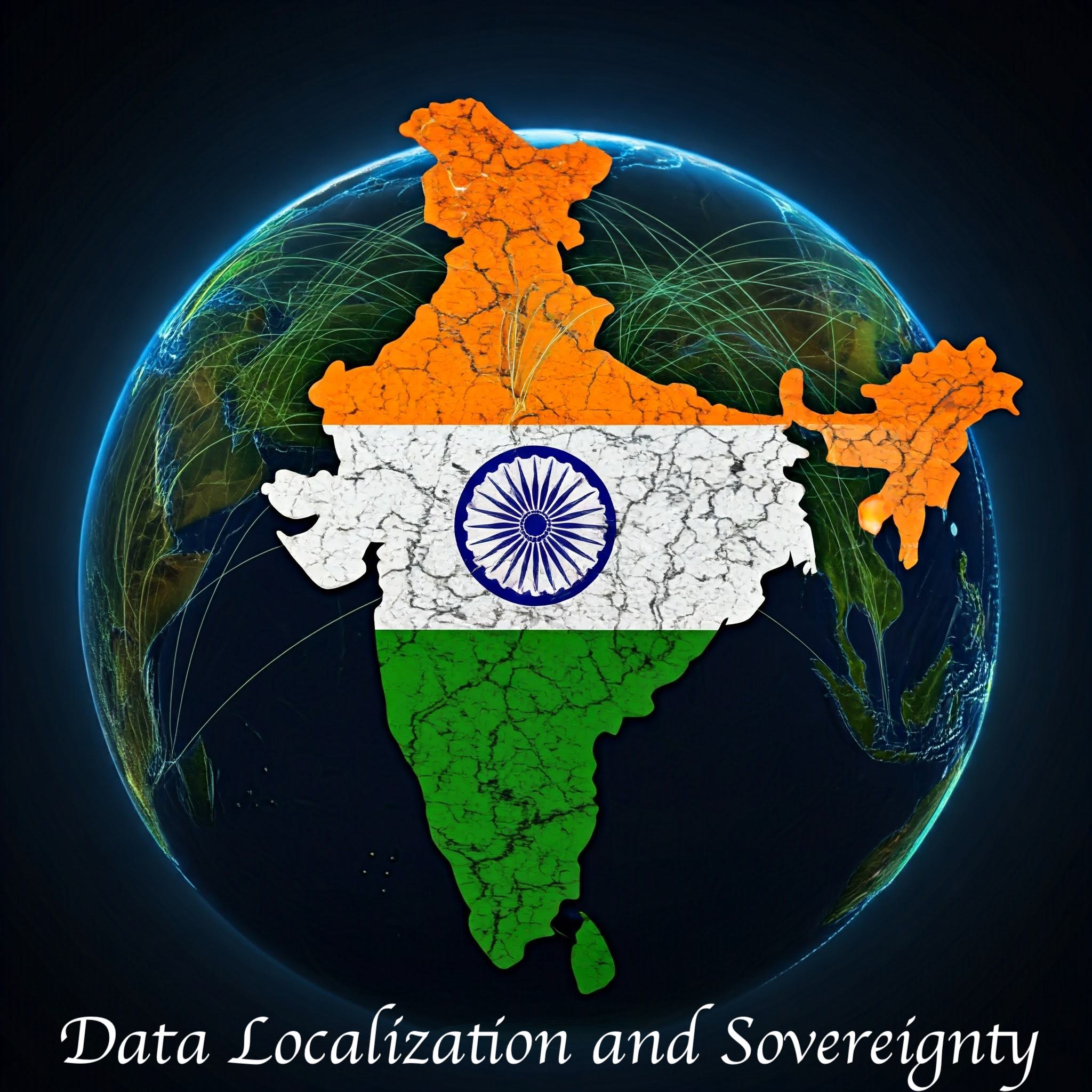Data Localization And Sovereignty – Under India’s Data Privacy Regulations
<>
In today’s increasingly digital and interconnected world, data has transformed into a valuable asset with far-reaching implications for individuals, businesses, and governments alike. Every second, vast amounts of data are generated, processed, and transferred across borders, fueling everything from routine transactions to complex analytics that drive policy-making and corporate strategies. However, this unprecedented flow of data has also heightened concerns over privacy, security, and regulatory control, prompting countries to re-evaluate how data within their borders is handled.
India, with its population of over a billion and rapidly digitizing economy, is particularly aware of the strategic importance of data. As a result, the Indian government has taken decisive steps toward data localization—the practice of mandating that data generated within the country's borders must be stored and processed locally. This shift is part of a broader movement to assert data sovereignty, ensuring that data remains under the jurisdiction of Indian laws and governance.
Understanding Data Localization: Definition and Goals
Data localization refers to the legal requirement for data generated within a country's borders to be stored and processed within that country. This mandate ensures that data remains under the jurisdiction of local laws, facilitating regulatory oversight and protecting national interests.
- Data Privacy and Protection: Ensures citizens' personal information is safeguarded against unauthorized access and misuse.
- National Security: Minimizes the risk of foreign surveillance and cyber threats.
- Economic Growth: Promotes local data centers and infrastructure, creating jobs and fostering innovation.
- Regulatory Compliance: Ensures adherence to local laws, facilitating better governance and accountability.
Implications for Businesses: Compliance Costs and Operational Changes for MNCs
While data localization aims to protect national interests, it presents several challenges for multinational corporations (MNCs):
- Increased Compliance Costs: Requires investments in local data storage infrastructure, impacting small and medium-sized enterprises (SMEs) especially.
- Operational Challenges: Necessitates changes in data management, supply chains, and IT systems.
- Legal and Regulatory Compliance: Requires businesses to invest in legal expertise and compliance mechanisms.
- Impact on Innovation: Restricts cross-border data flows, potentially hindering competitiveness.
Global Comparisons: Data Localization Laws in Other Countries
Several countries have implemented data localization laws, each with unique approaches:
- Russia: Mandates that personal data of Russian citizens be stored on local servers, with non-compliance leading to penalties.
- China: Requires that personal and critical data remain in China, with transfers abroad needing security assessments.
- European Union: Imposes strict data transfer conditions outside the EU, ensuring compliance with GDPR.
- Brazil: Allows international data transfers if recipient countries maintain adequate data protection standards (LGPD).
Future of Data Sovereignty in India: Alignment with Geopolitical Goals
India's data localization policies are intricately linked to its broader geopolitical objectives:
- Digital Sovereignty: Reduces dependency on foreign entities.
- Economic Development: Boosts local economy through investments in data infrastructure.
- Strategic Autonomy: Positions India as a key player in international data governance.
- National Security: Protects data from foreign surveillance and cyber threats.
Conclusion: Balancing Innovation and Data Sovereignty
Data localization is a strategic decision reflecting India's commitment to protecting its citizens’ data, promoting economic self-reliance, and asserting its role in global data governance. As India continues to refine these policies, balancing an open digital economy with security and sovereignty will be essential to maintaining its position on the world stage.
References
- "The Impact of Data Localization Requirements on Global Trade: A Case Study of India's Data Protection Laws." Bhatt & Joshi Associates.
- "India pulls in tech giants for its AI ambitions." Financial Times.
- "India’s data localization pivot can revamp global digital diplomacy." Atlantic Council.
Contact us via email at info@cyberlawconsulting.com for your AI and Data Privacy related services.
Submitted by : Adv. Aayush Desai, Data Protection & Privacy Consultant at Cyber Law Consulting (Advocates & Attorneys),
as guided by
Adv (Dr.) Prashant Mali ♛ [MSc(Comp Sci), LLM, Ph.D.]


